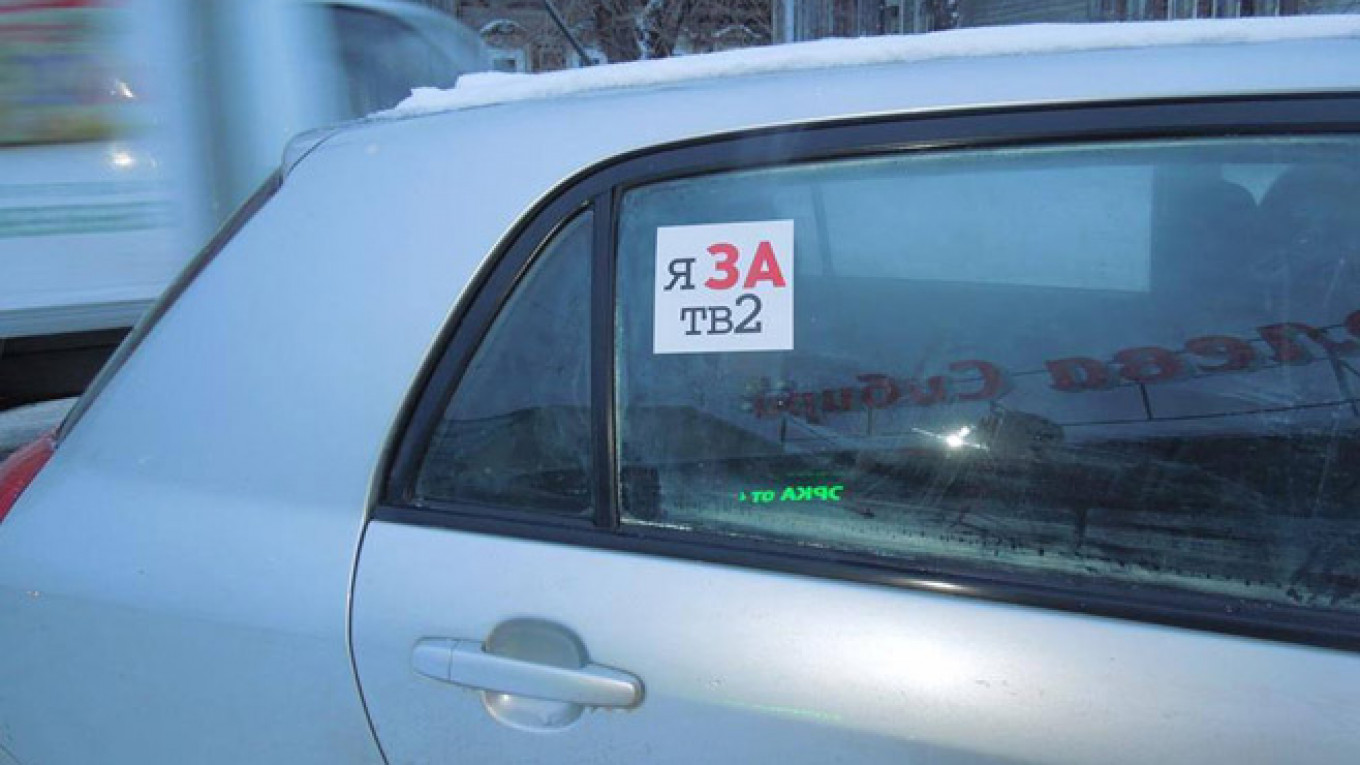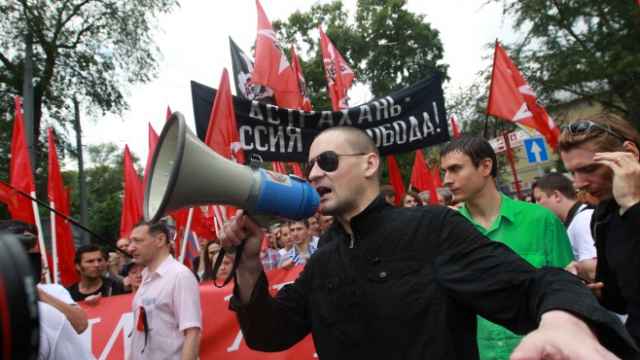Demonstrators in Tomsk have continued daily protests against the closure of the local TV-2 television channel, a move that critics say is part of a wider crackdown on independent media.
TV-2, one of the first independent news stations in the country, was forced to stop its broadcasts on Jan. 1 after the state-run regional broadcasting center canceled its agreement, making it available only through certain cable packages. The station has filed a complaint with a court over the move, saying the state broadcasting company has no right to stop the channel's broadcasts.
"TV-2 has been cut off the air, and still not a single state-run television channel has covered this news. Protests and pickets in support of TV-2 have already been held, one of which had a turnout of 4,000 people, and another one — 5,000. Neither the state broadcasting company, nor the gubernatorial channel have noticed. Once TV-2 is gone, they will be able to pretend that nothing is happening in the city," Viktoria Muchnik, an employee at TV-2 who attended recent demonstrations, was cited as saying on TV-2's website on Sunday.
Daily protests have been held outside the Tomsk administration building since early January, with between 10 and 15 demonstrators standing 30 meters from each other to avoid violating the law against unsanctioned protests.
Demonstrators have held up signs reading: "One law for the rich, another for the poor!" and "TV-2 back on the air! They drive us out onto the streets, and we'll go to the square!" according to Radio Liberty.
"I came here to picket not because I'm an employee of TV-2, but because this whole story isn't even about TV-2. It's about whether or not we can speak in this country. It's about freedom of speech," Olga Dubrovskaya, one of the channel's producers, said in comments carried by Radio Liberty.
"This is the last breaking point, after which it will simply be impossible to stay quiet. … It's much bigger than just the closure of TV-2. There is a vector in this country — attacks on Ekho [Moskvy], Dozhd, the little TV-2 in little Tomsk, and what will be next?" Dubrovskaya was cited as saying.
Several independent news outlets have come under fire recently, prompting speculation about the decline of Russia's freedom of speech. Dozhd TV was dropped by cable providers in January 2013 after publishing a controversial poll on World War II. The channel's editors claimed the move was a well-orchestrated attack on the channel for its opposition-friendly broadcasts.
Liberal radio station Ekho Moskvy has also landed in hot water with authorities recently, first getting a warning from the federal media watchdog over politically incendiary coverage of the Ukraine crisis in early November, and later ending up in dire straits over a radio host's comments about the death of presidential administration chief Sergei Ivanov's son.
Contact the author at a.quinn@imedia.ru
A Message from The Moscow Times:
Dear readers,
We are facing unprecedented challenges. Russia's Prosecutor General's Office has designated The Moscow Times as an "undesirable" organization, criminalizing our work and putting our staff at risk of prosecution. This follows our earlier unjust labeling as a "foreign agent."
These actions are direct attempts to silence independent journalism in Russia. The authorities claim our work "discredits the decisions of the Russian leadership." We see things differently: we strive to provide accurate, unbiased reporting on Russia.
We, the journalists of The Moscow Times, refuse to be silenced. But to continue our work, we need your help.
Your support, no matter how small, makes a world of difference. If you can, please support us monthly starting from just $2. It's quick to set up, and every contribution makes a significant impact.
By supporting The Moscow Times, you're defending open, independent journalism in the face of repression. Thank you for standing with us.
Remind me later.






